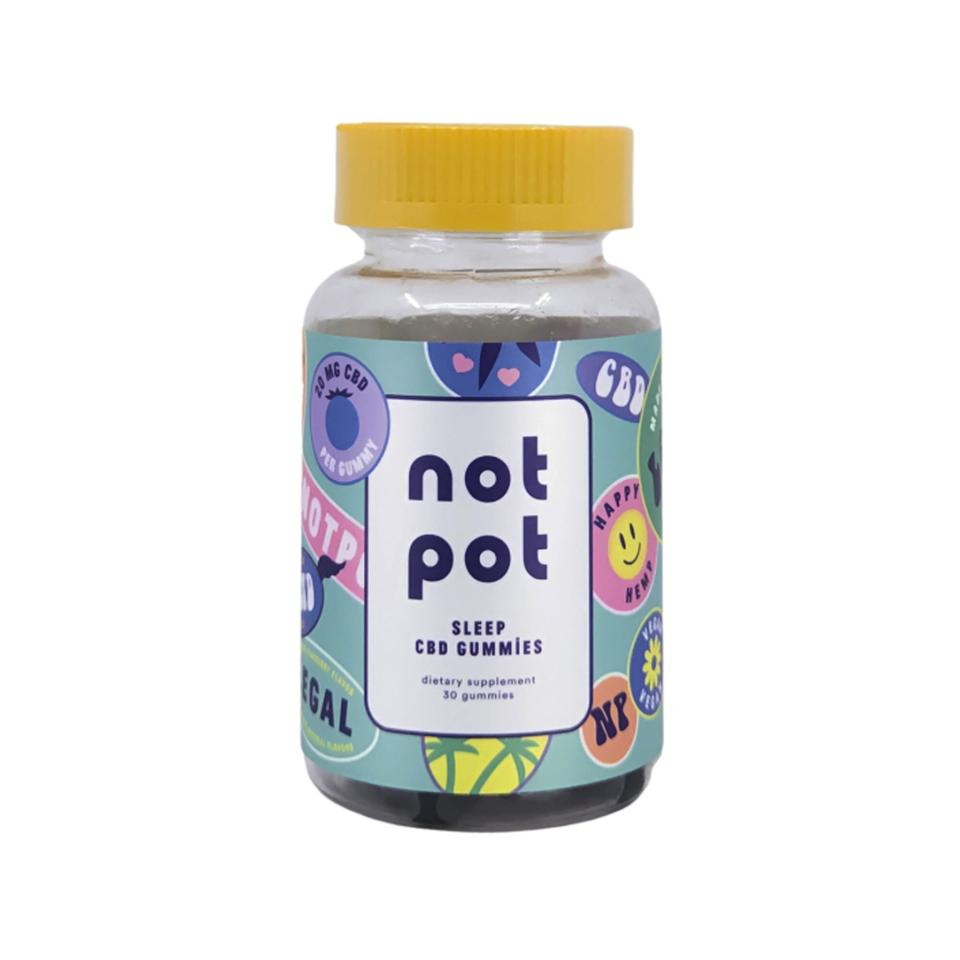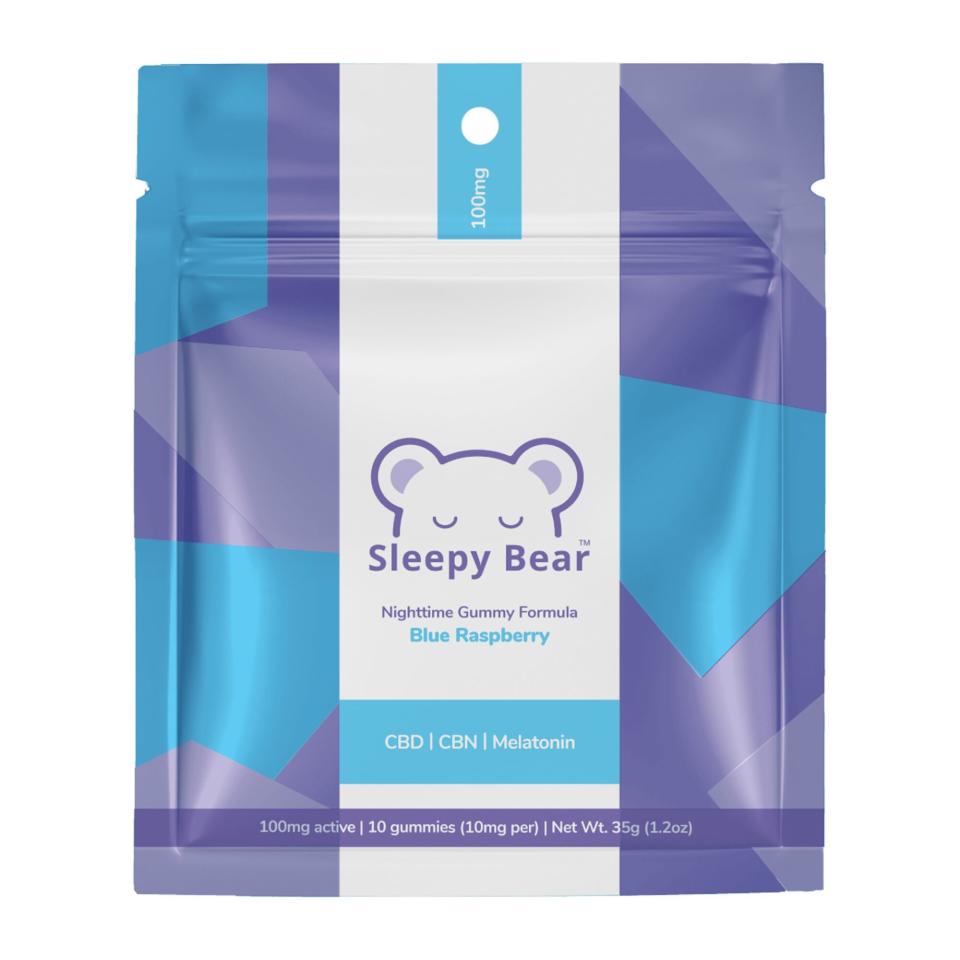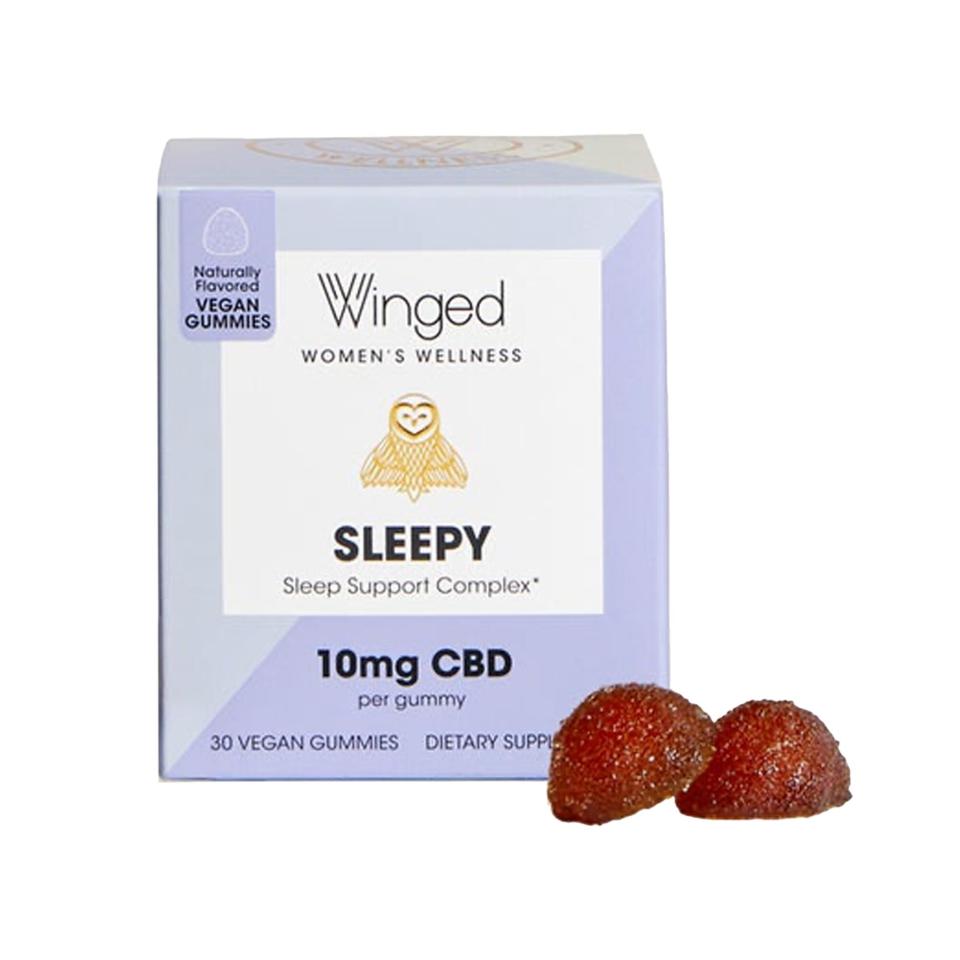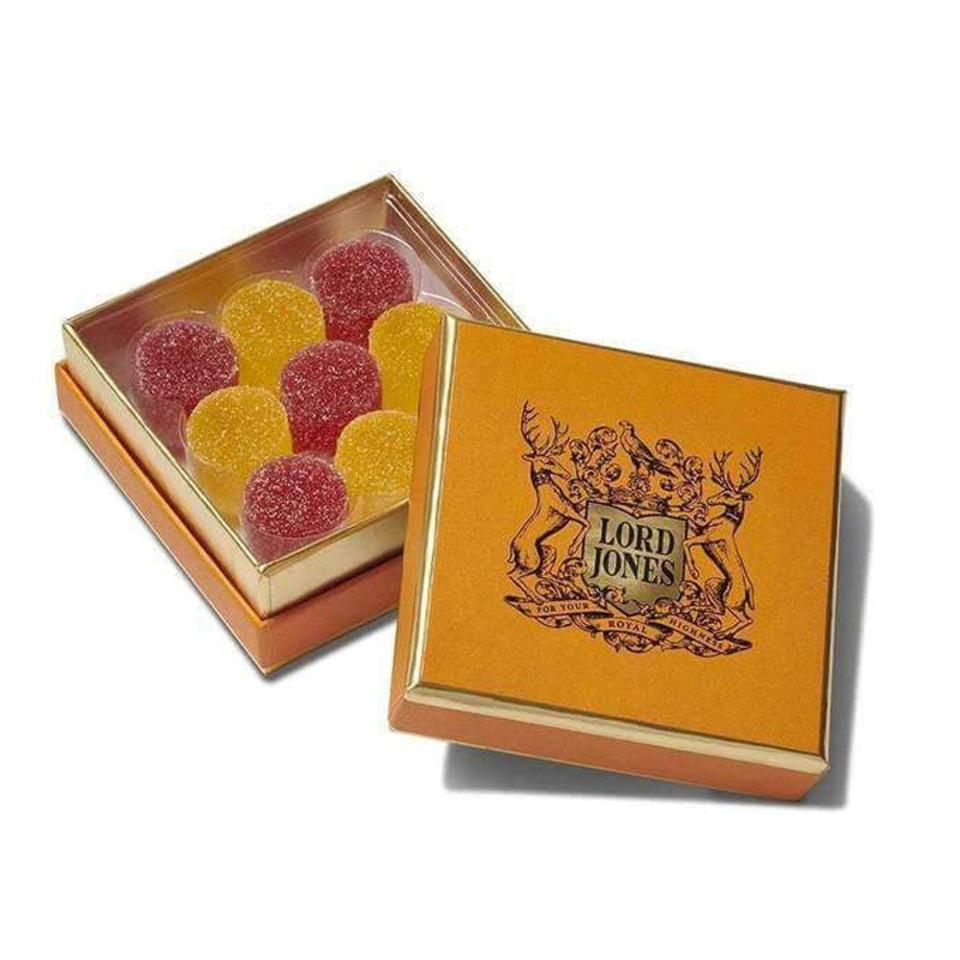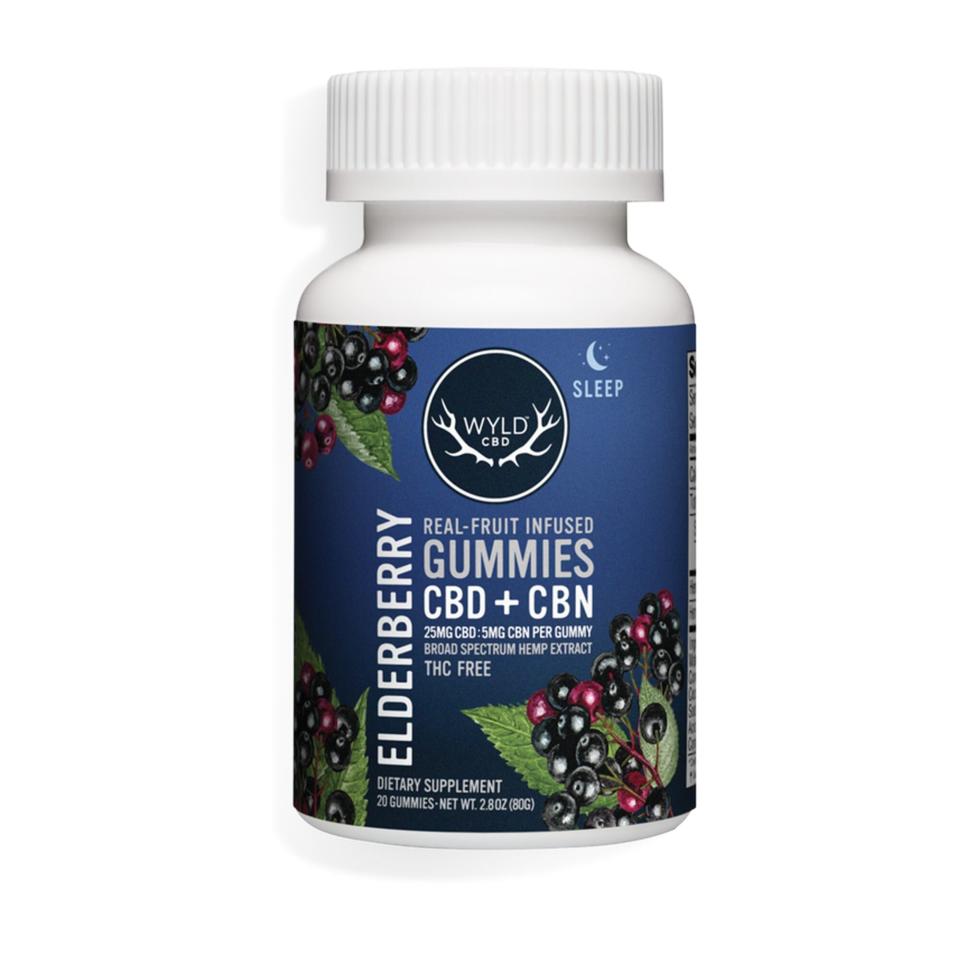Why You Might Want to Use CBD for Sleep — and How to Do Just That
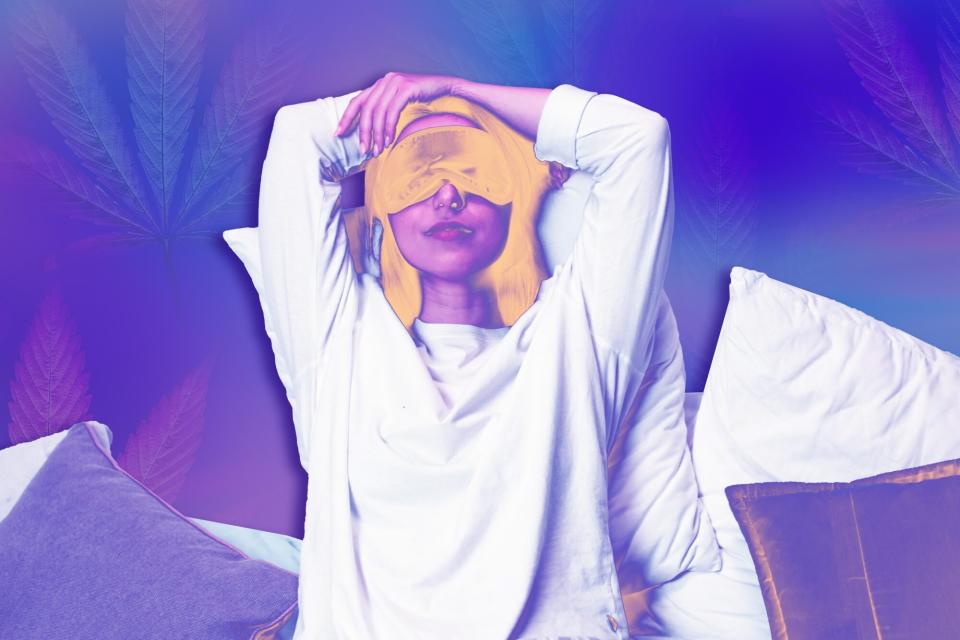
Getty Images
Trouble catching some zzz's? Maybe your sleep hasn't been great lately? Either way, it's time to do something about it.
"Sleep quantity is as important as sleep quality," says Alex Dimitriu, M.D., double board-certified psychiatrist and sleep medicine physician and founder of Menlo Park Psychiatry & Sleep Medicine. And while many substances (looking at you, wine) might help you feel sleepy, they can actually reduce your deep and REM sleep — two stages of sleep that are particularly beneficial to your brain and body's overall wellbeing.
But that doesn't seem to be the case with CBD. "Some recent research has suggested that CBD may be beneficial to sleep, without negatively impacting sleep architecture [aka what determines the quality and restorative ability of sleep]," according to Dr. Dimitriu.
So should you try using CBD to catch a few more winks? Perhaps. Ahead, experts weigh in on the potential pros of using CBD for sleep, explain the available research, and more.
First, What Is CBD?
By now, you've likely heard plenty about CBD, but let's review what it is so you can understand how it works. Ready? Let's go.
CBD comes from the cannabis plant (aka hemp or marijuana), which is chock-full of compounds called phytocannabinoids, such as tetrahydrocannabinol (THC), cannabinol (CBN), and — the star of this article — cannabidiol (CBD). While THC is known as the stuff that gets you high, "CBD is generally a non-intoxicating cannabinoid," says Smita Patel, M.D., a triple board-certified physician in neurology, sleep medicine, and integrative medicine and founder of iNeuro Institute. (Related: Drug, Medicine, or Something In Between? Here's What You Should Really Know About Weed)
CBD is "believed to produce beneficial effects such as anti-inflammatory, analgesic, anxiolytic [anti-anxiety], anti-nausea, and anti-epileptic effects, without causing the psychoactive or 'high' effects seen with THC," she explains. "In fact, CBD counteracts the psychoactive effect of THC by reducing anxiety and other negative effects of THC."
So, How Can CBD Be Beneficial for Sleep — If At All?
As with so many components of marijuana, there is a rather limited amount of scientific evidence on CBD for sleep. That being said, current research suggests that CBD may help with those zzz's due largely thanks to its ability to reduce anxiety and pain. The logic is somewhat simple: The calmer you are and the more comfortable you feel as you hit the hay, the more likely you are to drift off to dreamland successfully.
"Because of the way CBD interacts with the endocannabinoid system [a part of the nervous system that's designed to receive cannibinoids], it can help calm down the brain and body, making sleep more refreshing [as well]," says Melanie Bone, M.D., physician and cannabis specialist. "CBD interacts with receptors in the central nervous system (brain) as well as in other parts of the body. Biochemical reactions take place that increase certain neurotransmitters in the brain that encourage relaxation and sleep. This is a bit simplified, but it's the essence of how it works."
Similarly, CBD has also been shown to help with insomnia, which typically involves chronic difficulty falling asleep, staying asleep, or both. Because of their history of poor sleep, folks with insomnia might suffer from sleep anxiety, which can, in turn, increase their nighttime sleeplessness. CBD, however, might be able to help patients conquer this vicious cycle, thanks to its ability to reduce anxiety, according to the Sleep Foundation. As for research on the topic? A study looking at the use of CBD and THC in humans clinically diagnosed with insomnia is underway. (See more: Could Sleep Anxiety Be to Blame for Your Tiredness?)
The compound might also have the power to help manage REM sleep behavior disorder (RBD), a condition in which a sleeping person physically acts out and vocalizes their dreams, often with sudden, potentially violent arm and leg movements, according to the Mayo Clinic. For example, a 2014 study found that CBD (75 to 300mg per day for six weeks) reduced the frequency and symptoms of RBD. But (!!) it only involved four patients.
All that being said, "some patients find that taking an evening dose of CBD makes them feel awake, but when they lie down and close their eyes, they sleep deeper and longer than they do without the CBD," says Dr. Patel. "Other patients simply report that their CBD use in the morning or early afternoon helps them to relax and sleep more at night. CBD may disturb sleep in a small number of people when it's taken in the evening before bed."
Some good news? CBD probably isn't bad for your sleep cycle. Meaning, unlike wine, it likely won't change your sleep architecture (reminder: this is what determines the quality and restorative nature of the sleep you're getting). Case in point: A 2018 study that found that "CBD does not seem to interfere with the sleep cycle of healthy volunteers," explains Dr. Dimitriu. (And, TBH, just the fact that research like this exists is really exciting!)
How Much CBD Do You Need To Sleep?
If you're thinking, "wait, I tried this stuff, and it didn't work for me at all!" know that such a situation is pretty normal. "Because each person has a unique endocannabinoid system, each person may have a somewhat different reaction to a particular cannabinoid," says Dr. Bone. It could also come down to the dose; you just might not be taking enough. "Doses can range from 10mg to 500mg before people feel any effect," says Perry Solomon, M.D., a cannabis expert and board-certified physician. (Quite the range, no?)
"The key to achieving successful results with CBD is using an appropriate amount tailored to your individual needs," says Dr. Patel. "First, try CBD during the morning and in the middle of the day for three to five days before trying it right before bedtime. If you find CBD energizing and want to try it at bedtime, you may find that increasing your dose by two to four times may help with relaxation and sleep." (Related: I Tried 4 CBD Products for Sleep and Here's What Happened)
The universal advice from the experts: Start low and go slow. Begin by taking a small amount, and gradually scale up until you find what works best for you and helps you nod off. And if you're just getting started on your CBD for sleep journey, consider keeping tabs on your trials and errors. "You need to keep a sleep journal to record what you took, when you took it, and how you felt the next morning," advises Dr. Solomon. "You might need to adjust the time and dosage accordingly."
Dr. Patel shares a similar piece of advice: "Be sure to check in with your body and mind before taking [CBD] and one hour after taking the product so you can track its effectiveness." You can jot down how you feel right before you take your CBD and then 20, 40, 60 minutes later. Doing a body-scan meditation at these points can help you determine if any tensions have been released in your body (thereby telling you that the product's kicked in).
What Are the Forms of CBD?
There are plenty of options when it comes to the delivery of CBD, such as capsules, gummies, chocolates, oil droplets, tinctures, and more. But don't start stocking up on a veritable smorgasbord of products just yet. It helps to first identify your specific shut-eye struggles to best determine which, if any, CBD products could be a fit for you. "There are two issues with difficulty sleeping: falling asleep and staying asleep," says Dr. Solomon.
If you have trouble falling asleep, you'll typically want something fast-acting, such as a vape pen (but proceed here with extra caution given the recent health scares associated with certain pens), tincture (or oil) or dissolving under-the-tongue strips — all of which provide deliveries with the fastest efficacy, says Dr. Solomon. (Sound up your alley? You might want to check out these organic CBD oils, too.)
As for how long it takes for your dose of cannabidiol to kick in? It totally depends — and the experts don't have a formula. It depends on your body, the delivery, what you've recently eaten, and many other factors (those are just the ones experts know of right now). A rough range would be 15 to 90 minutes, with inhalation providing the fastest delivery (as little as 15-30 minutes). Research, however, is still scant on this.
Now, if you're having trouble staying asleep the whole night, you likely "need to take something that takes longer to begin to work and lasts longer," says Dr. Solomon. This means an edible method (including capsule) is your best bet. "An edible, such as a gummy, can take one to one and a half hours to kick in, and lasts four to six hours," says Dr. Solomon. "If taken before bed, it will start to work when you are asleep — and help keep you asleep." (Related: Are Edibles the Key to Better Sleep?)
CBD Products that Help With Sleep
"There are many products with varying ranges of CBD, CBN, and THC that some [patients] find effective, but others find don't work at all," says Dr. Solomon. "I might stay away from products that have a high amount of THC (the product that gets you 'high') since some people don't like that feeling. The exact amount can range from 5-10mg of THC, but again, it varies from person to person." (Related: What's the Difference Between CBD, THC, Cannabis, Marijuana, and Hemp?)
Unfortunately, THC still is not federally legal — so this author's personal favorite sleep gummy, Plus Dual Action Sleep Lychee Gummies, is only available in California. They have 3mg CBD, 2mg CBN, 1mg THC, and are like a FastPass to sleepy town, sans high.
As for CBD products you can find now online nationwide? Here are five solid options (that I've personally tested!) — each of which uses U.S.-grown hemp, premium ingredients (if any in addition to the weed compounds), and is lab-tested. Meaning, unlike so many shadier brands out there that might cut corners (thereby potentially impacting your health) to make a quick buck, these ones are all above the fray. (See also: How to Buy the Best Safe and Effective CBD Products)
